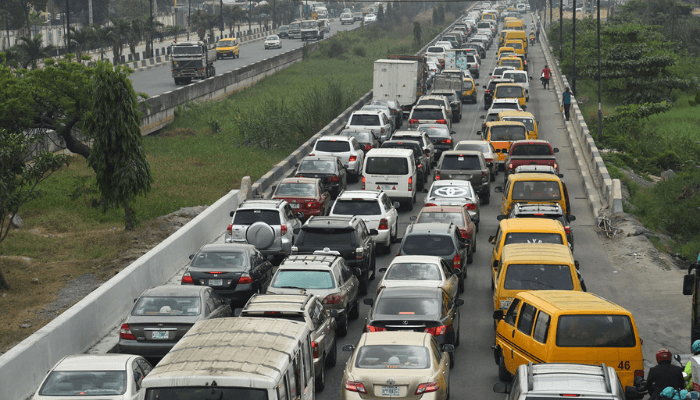The Lagos State Government has authorised the implementation of an e-call up system for the Lekki-Epe Free Trade Zone corridor to alleviate chronic traffic congestion caused by articulated vehicles accessing the Port corridor.
Dr. Frederic Oladeinde, the State Commissioner for Transportation, announced the State Government’s plan at a recent Stakeholders Meeting attended by senior officials from the Ministry of Transportation, Lekki Worldwide Investment Limited, Lagos Free Zone, Lekki Deep Sea Port, and Call up Technologies.
As part of the State Government’s urgent need to implement a sustainable, efficient, and technology-driven solution for truck movement in the Lekki-Epe Corridor, Oladeinde stated that the e-call up system application will enable the synchronisation of truck movement accessing the Lekki Deep Seaport and other industries in the corridor, from Eleko junction to Lekki Free Trade Zone.
The Transport Commissioner met with five Chairmen of Local Government Areas (LGAs), Local Council Development Areas (LCDAs) in Epe division, Lekki Worldwide Investment Limited (LWIL), representatives of Dangote Industries Limited, Nigeria Union of Petroleum and Natural Gas Workers (NUPENG), Federal Road Safety Corps (FRSC), and the Nigeria Police Force (NPF) during an initial meeting.
Read also: GetBundi, Lagos Government, Launch STEM Learning in Schools
An interim agreement was developed at the meeting to relieve traffic congestion by relocating all unlawful tankers from the red zone using a combined Task Force comprised of the State, LGAs/LCDAs, Security Agencies, and Stakeholders.
Hon. Sola Giwa, Special Adviser to the Governor on Transportation, who attended the meeting, emphasized the importance of preventing similar difficulties in Apapa and Tin Can from recurring in the Lekki-Epe axis, emphasizing the urgent necessity for the implementation of a Truck Queuing Management System.
E-call up system effectiveness
Giwa explained that the e-call up system is a successful method for regulating the transportation of trucks from holding areas to the pre-gate prior to entering the port premises. Giwa also mentioned that several holding bays, located in the vicinity of Epe and Alaro city, have been identified for potential certification and are currently being reviewed.
Nigeria: Lagos State Government Plans $2.5 Billion Fourth Mainland Bridge
The background
The Lagos e-call up system, also known as the Electronic Truck Call-Up System, was introduced by the Lagos State Government in February 2021 to manage the movement and parking of container trucks in and around the ports in Lagos. The system aims to reduce traffic congestion, improve security, and increase efficiency at the ports.
The effectiveness of the e-call up system in Lagos can be evaluated based on several factors, including its impact on traffic congestion, security, efficiency, and compliance.
Traffic congestion: The e-call up system has significantly reduced traffic congestion around the ports in Lagos since its introduction. Before the system, container trucks often parked indiscriminately on the roads, leading to gridlock and accidents. With the e-call up system, trucks are assigned a specific time to enter the port, reducing the number of trucks on the roads at any given time.
Security: The e-call up system has also improved security at the ports by reducing the number of unauthorised trucks that enter the port. This has reduced incidents of theft and other criminal activities at the ports.
Efficiency: The e-call up system has also increased efficiency at the ports by reducing the time it takes for trucks to enter and exit the port. This has reduced the turnaround time for trucks and increased the number of trips they can make in a day.
Compliance: The e-call up system has also improved compliance with regulations governing the movement and parking of container trucks in Lagos. The system has made it easier to monitor and enforce compliance with regulations, including the weight and size restrictions for trucks.
Overall, the Lagos e-call up system has been effective in reducing traffic congestion, improving security, increasing efficiency, and promoting compliance with regulations at the ports in Lagos. However, there are still some challenges with the system, including the need to address the issue of corruption and improve the infrastructure around the ports to accommodate the increasing number of trucks.




